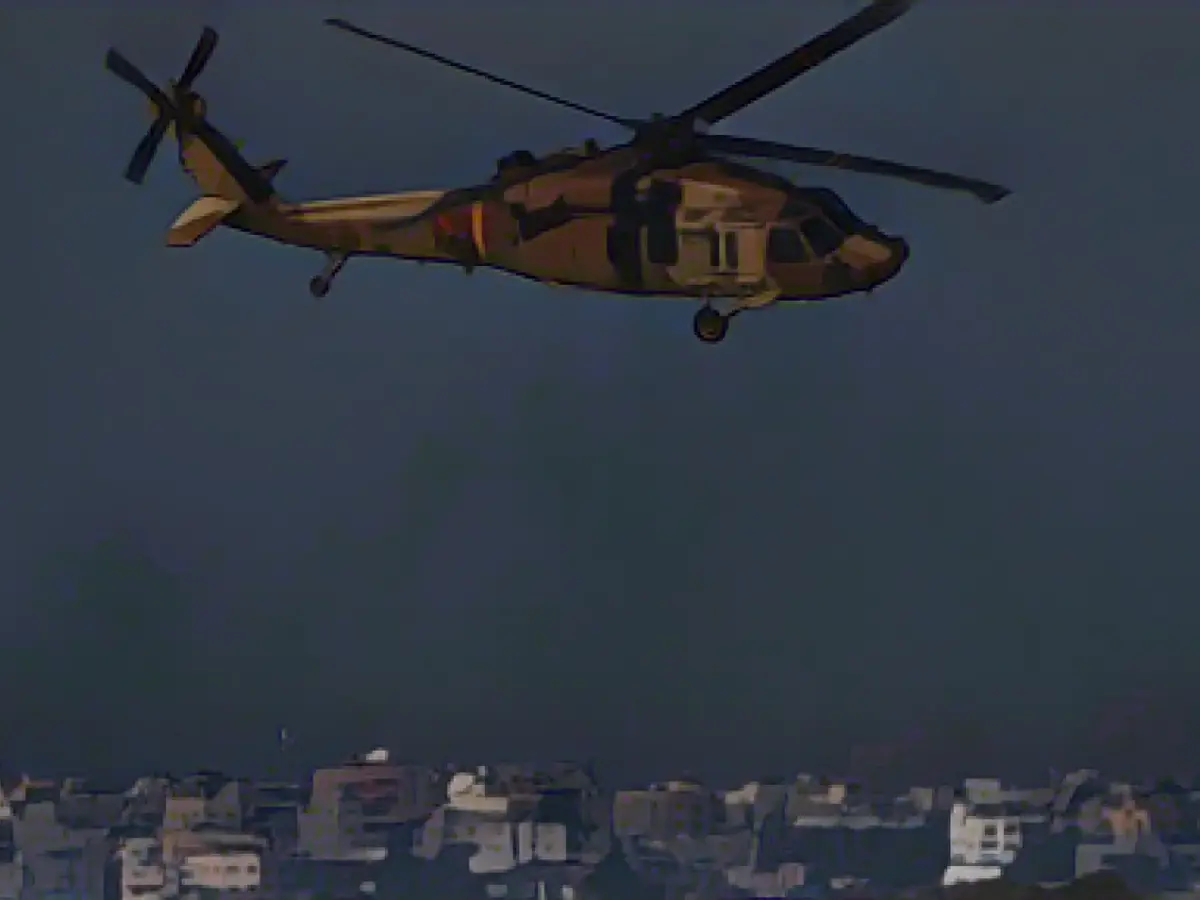Middle East - Gaza war: Is Israel violating international law?
At first glance, the answer seems simple to many. The suffering of civilians in the Gaza Strip is so great that Israel is clearly violating international humanitarian law with its bombardment.
The United Nations (UN) also sees many signs that such an accusation is justified. At the same time, it is undisputed under international law that Israel has a right to self-defence following the bloody terrorist attack organized by the Islamist Hamas on 7 October. Whether the requirements of international law are complied with depends on information that is currently almost impossible to obtain independently.
Is the bombing of the Gaza Strip with thousands of civilian victims a violation of international humanitarian law?
The answer requires a precise analysis. At present, the situation is being assessed primarily on the basis of information provided by the warring parties. In principle, international humanitarian law protects civilians and civilian objects. When taking military action, the military must, among other things, strictly observe the proportionality of the means. There is no formula as to when the proportionality between civilian casualties and the military objective achieved is violated. The attempt to eliminate the Hamas leadership may justify more civilian casualties than an attack on ordinary soldiers.
How can it be assessed that Israel, according to its own statements, is trying to limit the number of civilian casualties through escape corridors and warnings?
Under international law, there is an obligation to warn civilians that a military strike is imminent. This can be done by text message, leaflets or other means. If civilians do not heed the warning and the request to leave the area, this does not change their status. They always remain civilians. The effectiveness of warnings and offers to flee and the question of whether they meet the requirements of international humanitarian law is currently the subject of controversy and debate among international law experts. A comprehensive assessment requires a precise analysis of the specific circumstances and the course of the military operations.
How should the use of human shields be assessed?
The use of human shields is generally regarded as a serious violation of international humanitarian law. The use of civilians to protect military targets is a war crime. There is widespread international condemnation of the use of human shields.
Does absolute protection apply to hospitals or can civilian casualties be accepted if military opponents are entrenched there?
The principle of absolute protection of medical facilities means that they may not be attacked - unless they are misused for hostile acts. A hospital from which fighters are shooting or firing rockets can become a military target. If the enemy is hiding in or under the building, it may still not be attacked, says Graz-based international law expert Yvonne Karimi-Schmidt. The protection of civilians and civilian facilities has priority and it is expected that parties to the conflict do everything possible to protect medical facilities and their personnel.
What is the current Israeli view?
Former Attorney General Avichai Mandelblit points out that when it comes to the question of the proportionality of attacks, each attack is considered individually, not the total number of civilians killed. He speaks of an "asymmetrical war" with Hamas. As a democratic state, Israel is committed to the rules of war, while Hamas violates them, for example by misusing civilians as shields or firing rockets at Israeli population centers. Legal experts are always involved in decisions on Israeli attacks and can make statements on proportionality. However, the final decision is made by a commander.
What about the delivery of aid?
Whether as an occupying power or as a warring party, Israel must always allow the delivery of humanitarian aid such as food, water and medicine. However, such measures are no substitute for the basic protection and observance of human rights. According to Karimi-Schmidt, Israel's approval of the delivery of aid is a positive step towards meeting the humanitarian needs of the population in the Gaza Strip.
What legal or political dangers does Israel see?
Mandelblit emphasizes that the killing of civilians is not in Israel's interest, on the contrary, it plays into the hands of Hamas. Hamas therefore prefers a war in densely populated residential areas to a conflict in open territory. "If you kill civilians, attack hospitals and mosques that enjoy special protection, you have to prove that they were military targets, if not, you lose the war, you lose in the media and on the legal front," he says. If the legitimacy of military action is called into question, "the world will stop you".
Read also:
- Year of climate records: extreme is the new normal
- Precautionary arrests show Islamist terror threat
- Numerous oil, gas and coal lobbyists at climate conference
- COP28: Emirates announce fund for climate projects
- Despite the severe suffering in the Gaza Strip during the Gaza war, Israel argues that it has the right to self-defense under international law, following the terrorist attack organized by Hamas.
- The bombing of the Gaza Strip, resulting in thousands of civilian casualties, is a point of contention under international humanitarian law.
- According to the UN, Israel's bombardment may be a violation of international humanitarian law, but self-defense rights must be considered.
- Hamas' use of civilians as human shields is widely regarded as a violation of international humanitarian law and war crimes.
- The UN expects parties to the conflict, including Israel, to do everything possible to protect medical facilities and their personnel.
- Avichai Mandelblit, a former Israeli Attorney General, stresses the importance of following the rules of war and avoiding civilian casualties, as killing civilians plays into Hamas' hands.
- Israel must allow the delivery of humanitarian aid such as food, water and medicine to the Gaza Strip, according to international law, and its approval of aid delivery is a positive step towards meeting the population's needs.
Source: www.stern.de








